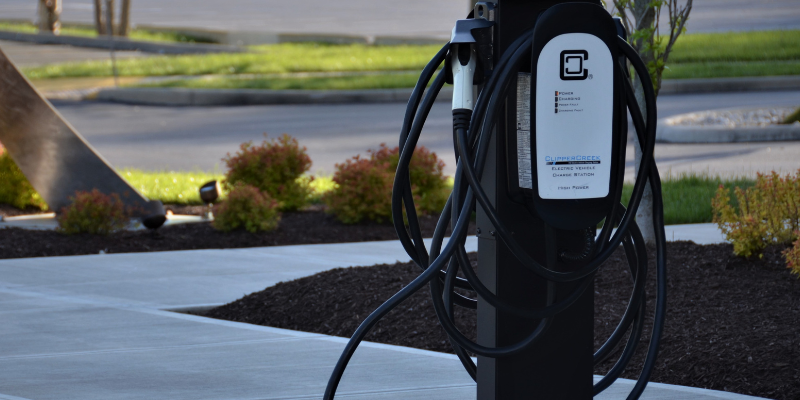This captivating blog post explores the uncharted skies of biofuels and electric propulsion. While traditional aviation has long been associated with carbon emissions, we are now at the precipice of revolutionary advancements that promise to transform the way we use fuel for aircrafts and airlines. Join us as we explore the potential impacts of biofuels and electric propulsion, igniting hope for a more sustainable tomorrow where our wings can take flight without weighing heavily on the planet.
Introduction to the Future of Sustainable Aviation
The aviation industry is on the cusp of a major transformation. For years, it has been searching for ways to reduce its environmental impact and become more sustainable. And now, it appears that biofuels and electric propulsion may be the key to unlocking a greener future for aviation.
Biofuels are renewable fuels made from plant or algae oils. They have the potential to reduce greenhouse gas emissions by up to 80% compared to traditional jet fuel. And while there are still some challenges to overcome – such as cost and scalability – the aviation industry is making significant progress in this area.
Electric propulsion is another promising technology that could help make aviation more sustainable. Electric aircraft are powered by batteries or fuel cells, which emit far less pollution than traditional jet engines. And while electric aircraft are still in the early stages of development, they have the potential to revolutionize air travel in the years to come.
So what does all this mean for the future of aviation? It’s hard to say for sure. But one thing is certain: The industry is on the right track when it comes to finding more sustainable ways to fly.
Examining the Potential Impacts of Biofuels on Air Travel
The aviation industry is under pressure to reduce its environmental impact. The production of biofuels and electric propulsion systems for aircraft is seen as a way to help achieve this goal.
Biofuels are made from renewable sources such as plants or algae. They have the potential to reduce emissions of greenhouse gases and other pollutants compared to fossil fuels.
Electric propulsion systems use electricity to power motors that drive the aircraft. They are more efficient than traditional engines and produce no emissions.
The use of biofuels and electric propulsion systems is still in its early stages. There is potential for these technologies to reduce the environmental impact of air travel in the future.
Examining the Potential Impacts of Electric Propulsion on Air Travel
Electric propulsion is a rapidly evolving technology with the potential to greatly reduce the environmental impacts of air travel. While the use of biofuels has been shown to significantly reduce carbon dioxide emissions from aircraft, electric propulsion has the potential to further reduce these emissions as well as other pollutants such as nitrogen oxides.
Aircraft powered by electric motors are already in operation, though on a very limited basis. The largest obstacle to widespread adoption of electric propulsion is currently the lack of an adequate infrastructure to support it. Aircraft require large amounts of energy to take off and fly, and this energy must be supplied by either batteries or fuel cells. Batteries are not currently able to store enough energy to power an aircraft for more than a few minutes, while fuel cells are expensive and have limited range.
If electric propulsion is to become a viable option for commercial air travel, significant investments will need to be made in infrastructure development. This includes building charging stations at airports and developing new battery technologies that can store enough energy to power an aircraft for extended periods of time. Additionally, research must continue into developing more efficient electric motors and improving the overall efficiency of electric propulsion systems.
The potential benefits of electric propulsion make it worth pursuing despite the challenges that remain. If successful, electric propulsion could lead to a future where air travel is much cleaner and more sustainable than it is today.
Advantages and Disadvantages of Switching to Biofuels and Electric Propulsion
The use of biofuels and electric propulsion in air travel is a topic of much debate. Some believe that these alternative fuel sources have the potential to significantly reduce the environmental impact of air travel, while others are concerned about the feasibility and cost-effectiveness of large-scale implementation. Here, we take a look at some of the key advantages and disadvantages of switching to biofuels and electric propulsion:
Advantages:
- Biofuels and electric propulsion could help to reduce the carbon footprint of air travel.
- These alternative fuel sources have the potential to be more efficient than traditional jet fuel, resulting in lower operating costs for airlines.
- The use of biofuels could help to create jobs in the agriculture and renewable energy industries.
- Electric propulsion is quieter than traditional jet engines, which would lead to reduced noise pollution near airports.
Disadvantages:
- There is currently no infrastructure in place to support widespread use of biofuels or electric propulsion in aviation. This would need to be developed before these technologies could be widely adopted.
- Biofuels are not yet commercially available on a large scale, so they are currently more expensive than traditional jet fuel.
- Electric propulsion technology is still in its early stages of development, so it is not yet as efficient as traditional jet engines.
Challenges and Limitations when Implementing Biofuels and Electric Propulsion
There are a number of challenges and limitations that need to be considered when implementing biofuels and electric propulsion for air travel.
First, the infrastructure needed to support these technologies is still in development. This includes things like refueling stations and charging infrastructure for electric aircraft.
Second, there are still some technical challenges that need to be addressed, such as how to store and transport large quantities of biofuel, or how to manage the high power requirements of electric propulsion.
Third, there are economic challenges that need to be considered, such as the cost of developing and implementing these technologies, or the potential impact on the airline industry if fuel prices increase. There are environmental challenges that need to be considered, such as the impact of large-scale biofuel production on land use or the emissions associated with electric propulsion.
Recent Advancements in Biofuel and Electric Propulsion Technology
The aviation industry is under pressure to reduce its environmental impact. Biofuels and electric propulsion are two technologies that have the potential to significantly reduce emissions from air travel.
Biofuels are made from renewable, sustainable resources such as algae or plants. They can be used in conventional jet engines without modifications. Biofuels have the potential to reduce greenhouse gas emissions by up to 80% compared to fossil fuels.
Electric propulsion technology is still in its early stages of development. However, it has the potential to revolutionize air travel by greatly reducing emissions. Electric aircraft are quieter and produce zero emissions. They also have the potential to be more fuel-efficient than traditional jet engines.
The aviation industry is investing heavily in research and development for both biofuels and electric propulsion. Several airlines have already started using biofuels on a commercial basis, and the first all-electric passenger aircraft is expected to enter service in 2023.
What is Being Done to Address the Challenges?
The aviation industry is under immense pressure to reduce its environmental impact. The sector has set ambitious goals to improve fuel efficiency and reduce emissions in the coming years. One area of focus is the use of biofuels and electric propulsion for aircraft.
Biofuels are made from renewable organic materials, such as plants and algae. They have the potential to significantly reduce greenhouse gas emissions from aircraft. Electric propulsion is another promising technology that could help decarbonize air travel. Electric planes are still in development, but they could one day revolutionize air travel by drastically reducing emissions.
Conclusion
The use of biofuels and electric propulsion is already being tested and implemented by some airlines. Virgin Atlantic has been flying its Boeing 747s on a 50-50 blend of jet fuel and sustainable biofuel made from coconut and babassu oils since 2008. In 2016, United Airlines became the first US carrier to fly commercial flights powered by biofuel. The airline has used a mix of traditional jet fuel and sustainable biofuel made from waste coffee grounds on select flights out of Los Angeles International Airport.
The aviation industry is working hard to develop these clean technologies and bring them to scale. If successful, biofuels and electric propulsion could play a major role in helping the sector meet its ambitious environmental goals”.



































